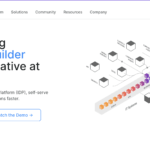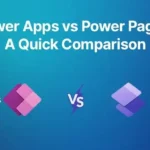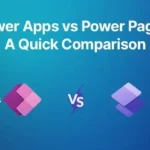FluentCommunity vs Circle: Key Differences Explained

FluentCommunity vs Circle: Key Differences Explained
In the ever-evolving landscape of online community building, two platforms have emerged as prominent players: FluentCommunity and Circle. Each of these platforms offers unique features and functionalities that cater to different audiences and use cases. Understanding the distinctions between them is crucial for individuals and organizations looking to establish a vibrant online community. In this article, we will delve into the specifics of each platform, exploring their technical requirements, performance optimization, user-friendly features, community engagement tools, and ultimately, how they compare against each other in the context of FluentCommunity vs Circle. By the end of this comprehensive analysis, you will have a clearer understanding of which platform may be the right fit for your community-building needs.
Overview of FluentCommunity
FluentCommunity is a robust platform designed primarily for those who seek to integrate their community-building efforts with existing server configurations. This platform is particularly well-suited for users who possess a certain level of technical expertise and are looking to create a highly customizable and performance-oriented community environment. One of the standout features of FluentCommunity is its optimization for performance when deployed on a Virtual Private Server (VPS) or Cloud server. This is in stark contrast to shared hosting, which is generally not recommended for WordPress sites that utilize FluentCommunity. The platform's optimal performance hinges on meeting specific technical requirements, which we will explore in detail below.
Technical Requirements
To fully leverage the capabilities of FluentCommunity, users must adhere to a set of technical specifications that ensure the platform operates smoothly and efficiently. These requirements include the necessity for PHP 8.1 or higher, MySQL 8.0+ or MariaDB 10.5+, and the use of Nginx as the web server. Additionally, FluentCommunity benefits significantly from the implementation of Redis for object caching, which enhances the speed and responsiveness of the platform. In terms of hardware, it is recommended that users have at least 2 CPU cores, 4GB of RAM, and NVMe SSD storage. These specifications are not merely suggestions; they are essential for creating a seamless user experience, particularly for those aiming to build robust online communities that can handle high traffic and engagement levels.
Performance Optimization
Performance optimization is a cornerstone of FluentCommunity's design philosophy. The platform is engineered to deliver high-speed performance, especially when utilized in environments that meet its technical requirements. This focus on performance is particularly beneficial for communities that anticipate significant user interaction, such as forums, social networks, or educational platforms. By optimizing server configurations and utilizing advanced caching mechanisms, FluentCommunity ensures that users experience minimal latency and quick load times, which are critical factors in retaining community members and encouraging active participation. Furthermore, the ability to customize various aspects of the platform allows users to tailor their community experience to meet specific needs, whether that involves integrating third-party tools or modifying the user interface.
Related Topic: FluentCommunity vs Skool: Key Differences Explained
FluentCommunity vs Skool: Key Differences ExplainedTarget Audience
The target audience for FluentCommunity primarily consists of individuals and organizations that possess a certain level of technical expertise and are comfortable managing their own server environments. This includes developers, tech-savvy entrepreneurs, and businesses that require a high degree of customization and performance from their community platform. FluentCommunity appeals to those who are looking to create a unique online space that reflects their brand identity and engages users in meaningful ways. Additionally, educational institutions and professional organizations that require robust community features may find FluentCommunity to be an ideal solution, given its emphasis on performance and customization.
Overview of Circle
In contrast to FluentCommunity, Circle is a platform that prioritizes user-friendliness and accessibility. Designed to facilitate community engagement and interaction, Circle offers a suite of features that make it easy for users to create and manage their own communities without the need for extensive technical knowledge. This approach makes Circle an attractive option for individuals, small businesses, and organizations that want to foster community engagement without the complexities associated with server management and performance optimization. The platform's emphasis on ease of use is evident in its intuitive interface and straightforward setup process, allowing users to focus on building relationships rather than grappling with technical challenges.
User-Friendly Features
Circle is equipped with a variety of user-friendly features that enhance the community experience. These include discussion forums, member profiles, content sharing capabilities, and event management tools. The platform's design encourages interaction among members, making it easy for users to engage in discussions, share resources, and collaborate on projects. Additionally, Circle provides customizable templates that allow users to personalize their community spaces without needing to delve into complex coding or design work. This focus on user-friendly features ensures that even those with minimal technical skills can successfully create and manage a thriving online community.
Community Engagement Tools
One of the standout aspects of Circle is its robust community engagement tools. The platform offers features such as polls, surveys, and direct messaging, which facilitate interaction and foster a sense of belonging among members. Circle also supports multimedia content sharing, enabling users to post videos, images, and documents easily. This versatility in content types encourages diverse forms of engagement, catering to different preferences and learning styles within the community. Furthermore, Circle's notification system keeps members informed about new discussions, events, and updates, ensuring that they remain engaged and connected to the community. Overall, Circle's emphasis on community engagement tools makes it an appealing choice for those looking to build a vibrant and interactive online space.
Related Topic: FluentCommunity vs Youzify: Key Differences Explained
FluentCommunity vs Youzify: Key Differences ExplainedTarget Audience
The target audience for Circle is broad and inclusive, encompassing individuals, small businesses, and organizations that prioritize community engagement and interaction. This platform is particularly well-suited for educators, coaches, and content creators who wish to build a loyal following and foster meaningful connections with their audience. Additionally, non-profit organizations and community groups may find Circle to be an effective tool for mobilizing members and facilitating discussions around shared interests and goals. The accessibility and user-friendly nature of Circle make it an ideal choice for those who may not have the technical expertise required to manage a more complex platform like FluentCommunity.
Comparative Analysis
When examining the differences between FluentCommunity and Circle, it becomes clear that each platform serves distinct purposes and audiences. While FluentCommunity is tailored for users who possess technical expertise and seek a high degree of customization and performance, Circle offers a more straightforward, user-friendly experience that prioritizes community engagement. To further illustrate these differences, we will conduct a feature comparison that highlights the key distinctions between the two platforms.
Feature Comparison
| Feature | FluentCommunity | Circle |
|---|---|---|
| Technical Expertise Required | High | Low |
| Performance Focus | Yes | No |
| Ease of Use | No | Yes |
| Customization Options | Extensive | Limited |
| Community Management | Complex | Straightforward |
The table above succinctly summarizes the key differences between FluentCommunity and Circle, particularly in the context of FluentCommunity vs Circle. As we can see, FluentCommunity requires a higher level of technical expertise, making it more suitable for users who are comfortable managing their own server environments. In contrast, Circle is designed for ease of use, allowing individuals and organizations to create and manage communities without the need for extensive technical knowledge. Additionally, FluentCommunity places a strong emphasis on performance optimization and customization options, while Circle focuses on providing straightforward community management tools that facilitate engagement and interaction.
Conclusion
In conclusion, the choice between FluentCommunity and Circle ultimately depends on the specific needs and goals of the user or organization. For those who possess the technical expertise and resources to manage their own server environments, FluentCommunity offers a powerful platform that prioritizes performance and customization. This makes it an ideal choice for users looking to build robust online communities that can handle high levels of engagement. On the other hand, Circle presents a more accessible option for individuals and organizations that prioritize ease of use and community engagement. Its user-friendly features and straightforward setup process make it an attractive choice for those who may not have the technical skills required to navigate a more complex platform.
Related Topic: FluentCommunity vs wpForo: Key Differences Explained
FluentCommunity vs wpForo: Key Differences ExplainedChoosing the Right Platform
When deciding between FluentCommunity and Circle, it is essential to consider factors such as the level of technical expertise available, the desired level of customization, and the specific goals for community engagement. If performance and customization are paramount, FluentCommunity may be the better choice. However, if ease of use and accessibility are more critical, Circle is likely to be the more suitable option. Ultimately, the right platform will depend on the unique needs and objectives of the user or organization, and careful consideration of these factors will lead to a more successful community-building experience.
Final Thoughts
As the landscape of online community building continues to evolve, platforms like FluentCommunity and Circle play a vital role in shaping how individuals and organizations connect and engage with their audiences. By understanding the key differences between these two platforms, users can make informed decisions that align with their specific needs and goals. Whether you choose FluentCommunity for its performance and customization or Circle for its user-friendly approach, both platforms offer valuable tools for fostering community engagement and building meaningful connections. In the end, the choice between FluentCommunity vs Circle will ultimately depend on your unique circumstances and aspirations for your online community.
If you want to discover other articles similar to FluentCommunity vs Circle: Key Differences Explained, you can visit the Tools and Reviews category.

Related Posts: